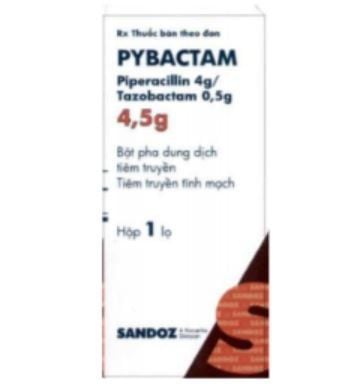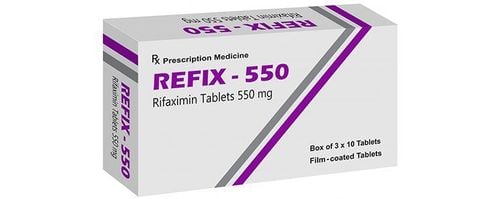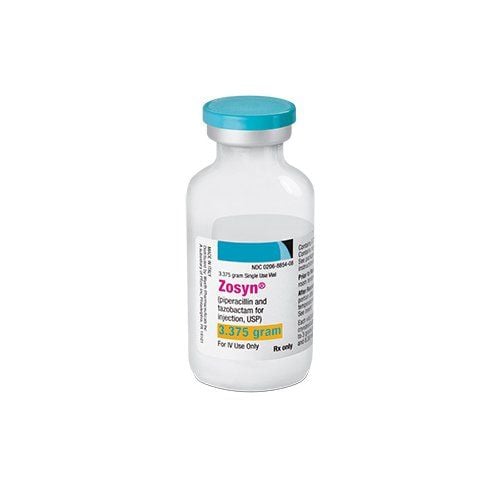This is an automatically translated article.
Lymph nodes play an important role in fighting disease. Inflamed lymph nodes will help with symptoms such as appendicitis. When the inflammation of the lymph nodes in the mesentery attaches the intestine to the abdominal wall, it is called mesenteric lymphadenitis.
1. What is mesenteric lymphadenitis?
The mesentery has a role in helping bowel movements to a certain extent in the abdomen. It is located between the intestines and the abdominal cavity. Without the mesentery, the bowel is likely to frequently twist and turn on itself causing obstruction. Mesenteric lymphadenitis is a condition in which the lymph nodes in the mesentery that attach the intestine to the abdominal wall become inflamed. One of the main causes of mesenteric lymphadenitis is usually an intestinal infection. Therefore, mesenteric lymphadenitis often presents with signs of appendicitis. The disease is common in children with the most common symptom being abdominal pain. However, mesenteric lymphadenitis rarely becomes serious and resolves without sequelae.
2. Symptoms of mesenteric lymphadenitis
Depending on the condition of the disease, the patient has different symptoms. Usually the common symptoms of mesenteric lymphadenitis are:
Abdominal pain: Usually focused on the lower right side, but the pain can sometimes be more widespread High fever causes additional symptoms of diarrhea, fatigue Loss of appetite Lack of energy Increased white blood cells Nausea, vomiting However, before these symptoms appear, the person will experience symptoms of an upper respiratory infection such as a sore throat.

Đau bụng là một trong các triệu chứng viêm hạch mạc treo
3. Causes of mesenteric lymphadenitis?
Infection is the most common cause of mesenteric lymphadenitis. Infection can occur in one area or all over the body. Infection can be caused by:
Bacteria: Like Yersinia bacteria, it can come from eating undercooked pork or drinking unpasteurized milk or contaminated water. Viruses: Like gastroenteritis - commonly known as stomach flu Parasites Common infections that cause mesenteric lymphadenitis include:
Gastroenteritis: Can be caused by a virus (rotavirus or norovirus) or bacteria (salmonella, staphylococcus or streptococcus). Gastroenteritis is also known as stomach flu. Yersinia enterocolitica infection. This is the most common cause of mesenteric lymphadenitis in children. This bacteria can cause gastroenteritis and other problems. It may resemble Crohn's disease or acute appendicitis.
Other infections that cause conjunctivitis include:
Infections directly or indirectly related to HIV . This is the virus that can lead to AIDS. Tuberculosis: This is a bacterial infection that usually attacks the lungs, but can also attack other parts of the body. Acute enteritis: This is inflammation in the last part of the small intestine, which can be caused by bacteria or Crohn's disease. In addition, cancer is also the cause of diseases, but less common such as: Lymphoma; Breast cancer ; Lung cancer ; Pancreatic Cancer ; Gastrointestinal cancer....
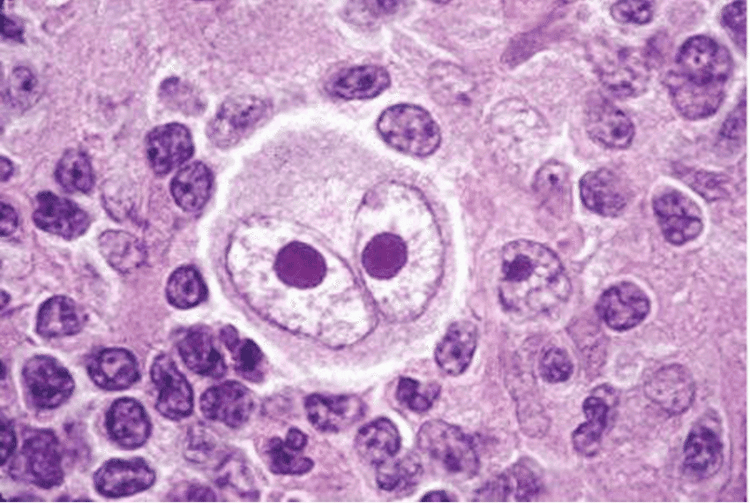
Ung thư có thể là nguyên nhân gây bệnh viêm hạch mạc treo
4. Complications of mesenteric lymphadenitis
Sepsis is one of the most dangerous complications of mesenteric lymphadenitis. Although it rarely has complications, when a serious bacterial infection is left untreated, the bacteria can spread into the bloodstream, causing a serious and life-threatening infection. .
5. Diagnosis of mesenteric lymphadenitis
Usually, mesenteric lymphadenitis is discovered only on imaging tests for another problem, since the disease has no specific symptoms.
To diagnose the disease, the doctor will perform some of the following tests:
Blood test to help detect infection Urine test to rule out urinary tract infection Abdominal ultrasound or CT scan to rule out other causes other cause symptoms.
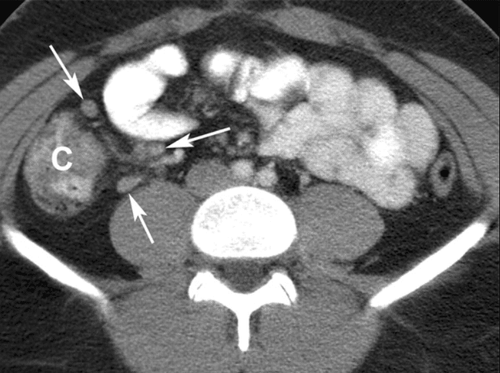
Kết quả CT viêm hạch mạc treo
6. Measures to prevent mesenteric lymphadenitis
Mesenteric lymphadenitis should be treated with antibiotics and pain relievers. Absolutely avoid aspirin because it increases the risk of Reye's syndrome in children.
In addition to treating the disease with antibiotics, mesenteric lymphadenitis can be treated at home with rest and a reasonable diet.
For young children, it is necessary to have a more special home care regimen such as:
Feed the child with liquid and easy to digest foods such as: milled rice flour, porridge... Avoid giving children a lot of food spicy, salty, ... and inflammatory foods. Add plenty of water to prevent dehydration from fever, vomiting and diarrhea, vitamins, minerals, green vegetables for children. Give your child plenty of rest to recover. Use some pain-relieving measures for your child, such as using a warm, damp washcloth to apply to the abdomen.

Thuốc kháng sinh được dùng điều trị viêm hạch mạc treo
Vinmec International General Hospital is one of the hospitals that not only ensures professional quality with a team of leading medical doctors, modern equipment and technology, but also stands out for its examination and consultation services. comprehensive and professional medical consultation and treatment; civilized, polite, safe and sterile medical examination and treatment space.
Customers can directly go to Vinmec Health system nationwide to visit or contact the hotline here for support.
MORE
Diagnosis and treatment of mesenteric lymphadenitis Is mesenteric lymphadenitis dangerous? Signs of mesenteric lymphadenitis are similar to appendicitis




